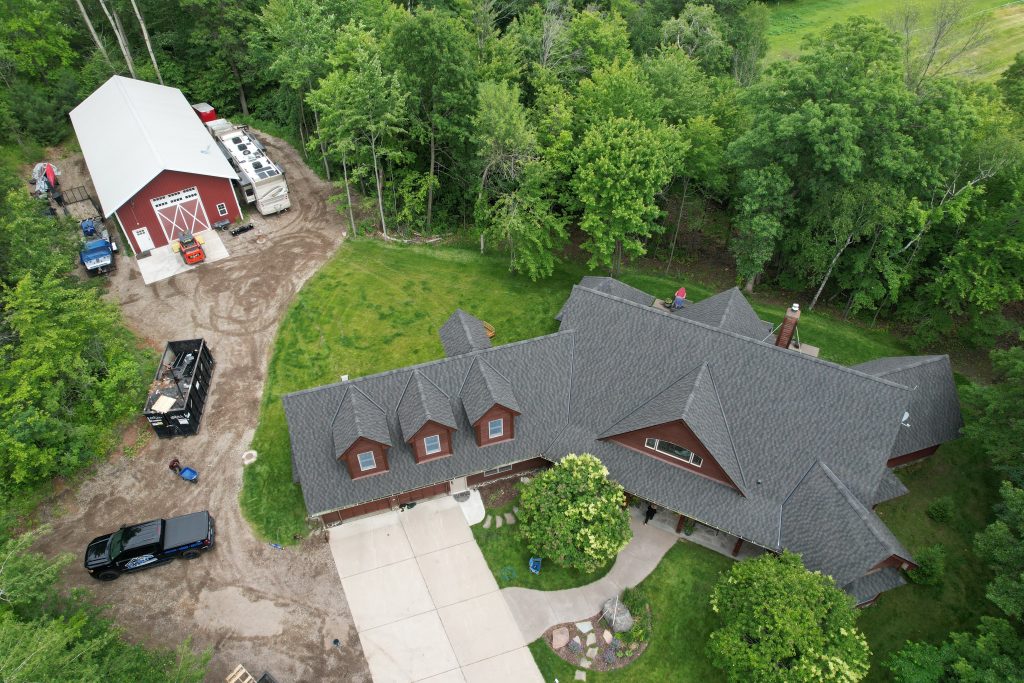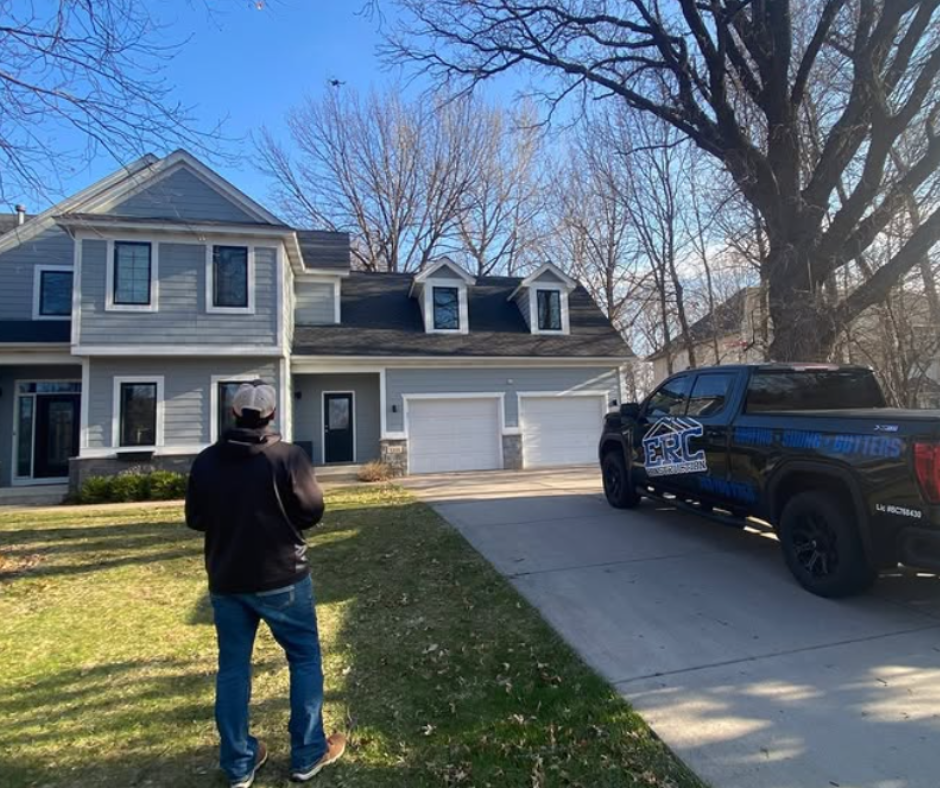Build- Repair- Restore
Our family caring for yours!
We are an experienced company that is dedicated to delivering BIG results!
Our Services
Reviews
Trustindex verifies that the original source of the review is Google. My experience with ERC could not have been better. Initial contact was Tim--informative, responsive, friendly. The crew was on time, pleasant, and did a great job. Site manager Randy kept things moving and saw it through completion.Trustindex verifies that the original source of the review is Google. We had a such a great experience with ERC from the initial contact through completion of the job! Even though we had a really small job, we felt that we were an important and valued customer from the start. Communication was outstanding and responsive! Every employee we came in contact with was great to work with! They strive for superior customer service and workmanship and from our experience with them, they have surpassed our expectations! We already have a future project list in mind for them to do since we were so happy with their services!Trustindex verifies that the original source of the review is Google. We are very happy – make that extremely pleased! – with the work ERC performed on our house to replace our roof, gutters and fascia. We spent the better part of two years trying to find the right contractor for this project and discussed, met with and got bids from a number of contractors before choosing ERC. ERC was informative, responsive, reliable and professional throughout the entire process, from initial contact through the process for developing the bid, through the completion of the work, and including the communications and invoicing with the insurer. Our project was not an easy “cookie-cutter” project, but ERC did an excellent job of handling all of the complications, as well as some significant weather challenges during the project. Of note, we particularly liked the fact that ERC had a dedicated foreperson on the job (and owner) that served as a single and effective contact person during the project and ensured the quality of the work and that the project was completed in a timely manner. ERC is a family-owned company that clearly takes pride in their work and the results show. We would highly recommend them to anyone based on our experience!Trustindex verifies that the original source of the review is Google. ERC Construction Inc. was outstanding! They offered me a very affordable quotation, came out to talk to me, brought the supplies, and installed the new roof in a week! Cory was really helpful and eager to ensure that I had a fantastic experience! They were highly recommended by a friend, and I would gladly refer them to anyone!Trustindex verifies that the original source of the review is Google. ERC Construction Inc provided excellent customer service from start to finish. Their team was responsive, knowledgeable, and completed my roofing project on time and within budget.Trustindex verifies that the original source of the review is Google. I recently found ERC Construction on Angie's List and hired them for a big home improvement project, including getting a new roof, installing gutters, and fixing some siding. I'm really happy with the amazing work they did. I'm a picky customer who likes to do thorough research before making decisions, so I had six different contractors come and check my roof. After all that, I chose ERC Construction, and they proved to be the right choice. ERC Construction was really professional and did an awesome job communicating with me. They kept me updated throughout the whole project and quickly addressed any questions or concerns I had. They were also flexible and able to meet my request for special shingles that are resistant to hail, have special properties to minimize air pollution (Malarky Vista Class 4 shingles). This choice ended up saving me $450 on my home insurance every year. It shows that ERC Construction is willing to go the extra mile and is committed to delivering great quality and long-term cost savings for their customers. To sum it up, I'm thrilled to recommend ERC Construction for all your roofing and siding needs. Their great craftsmanship, outstanding customer service, and money-saving solutions make them the best in the business. Choosing ERC Construction for my home improvement project was a great decision, and I'm confident they will continue to exceed expectations for anyone who hires them. I am not affiliated in any way with ERC Construction, and I did not get anything in return for this review.Trustindex verifies that the original source of the review is Google. In June of 2022 Christ Church in Otsego, MN experienced significant hail damage that required the replacement of all our roofing and metal siding. We chose ERC as our contractor and couldn’t be happier with the results. From the beginning of the process to the very end Cory Lohse and his team were attentive to every detail from working with our insurance company to picking materials and colors to executing the “extreme makeover” with excellent workmanship that was on time and on budget. I highly recommend that you consider them for your home or business. Great or small they will get the job done! -Greg Pagh, Senior PastorTrustindex verifies that the original source of the review is Google. We woke up to water coming in through our dining room ceiling due to what turned out to be an ice dam. Tim came out the same day, correctly assessed the problem, and quickly had a team come in to take care of the dam. He was very good with communication and follow-up. I would highly recommend their services.Trustindex verifies that the original source of the review is Google. ERC did a great job! I talked to Tim at ERC when I noticed icicles hanging from my soffit and inches of ice on my roof. I knew I needed ice dam removal. ERC scheduled the service within a day and their crew took care of my issues. The crew let me know exactly what the process was and offered suggestions as the service progressed. I was very impressed by the service and especially the clean up after. I would recommend ERC to my family and friends.Trustindex verifies that the original source of the review is Google. Cory and his team did a great job explaining everything going on and working with the insurance company in getting everything taken care of on replacing our roof. The siding replacement hit a hiccup and took longer than expected and the communication on the delay was a little lacking, but every other interaction was professional and courteous.

Why Choose Us?

Lifetime Warranty
We are committed to lasting results, which is why every build, repair, and restore project we complete in MN comes with a lifetime warranty. Remodeling, repairing, and restoring your home can be costly. That’s why you want to be sure your investment is well spent and the work continues to perform care-free for years to come. We go above and beyond the required 1 year warranty.

Project Management
We offer full-service construction project management in Minnesota—streamlining communication, timelines, and quality control. to assure this 100% satisfaction we have a project manager on site on every project all day long. They get there before the crews and are the last ones to leave to do a final walkthrough!

Customer Service
From your first consultation to the final walkthrough, we provide unmatched customer service throughout your MN construction journey. Our main focus is to make sure the customer is 100% satisfied with the job completed.

GET IN TOUCH
Contact ERC Construction Inc today to learn more about what we can do for you. We are happy to answer any questions that you have, and put together an estimate based on your needs in order to find the best solution for your home. We look forward to working with you!



